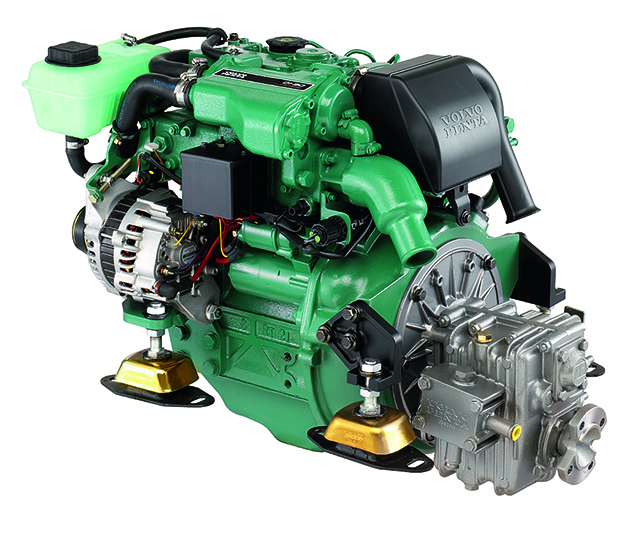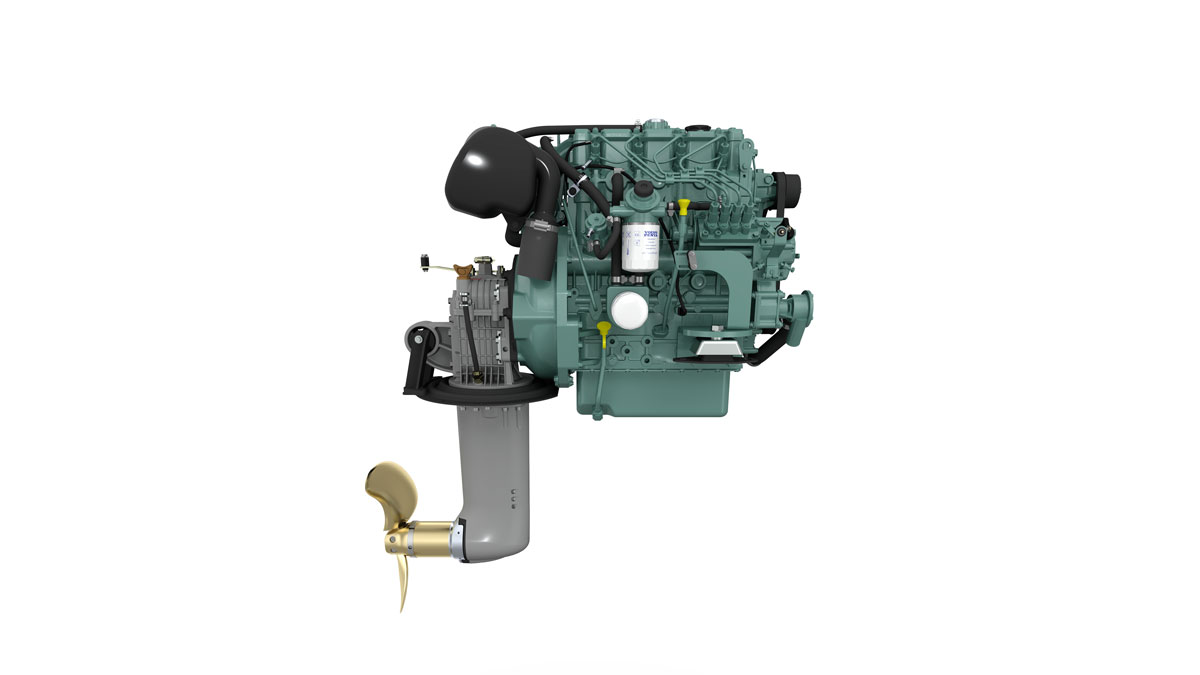Every sailor needs to understand how their diesel engine works. In the second of this series, we look at the diesel engine air system
The diesel engine air system is deceptively simple – but any defects can have major repercussions.
The system comprises of the air entering the engine compartment, the air supply via the air intake, and the exhaust system.
In effect, the diesel engine is a large and efficient air pump that is capable of huge suction at the air intake.
A 30hp diesel engine running at 3,000 rpm will consume around 1,000 litres of air per minute, even when it is developing little power.
That’s a box of air 1m x 1m x 1m every minute. On leisure craft we must allow this flow of air into the engine compartment.

A normally aspirated air system
When an engine is running, the correct fuel-air ratio will be maintained by the engine itself, as long as there is plenty of air available.
Too little air means black smoke.
Once we’ve got the air into the engine compartment, with larger vessels often using forced-air ventilation with an air intake pump, there are two ways an engine can breathe.
In a normally aspirated system the engine sucks air into itself via an intake and hence the engine compartment.
This is done when the piston goes down for the induction stroke.
Continues below…
Diagnose and fix marine diesel engine problems
Tim Bartlett explains how you can diagnose some common marine diesel engine problems, and fix most of them
Why you should stop flooding your engine
Water in the cylinders is enough to destroy an engine, but it's easy to do by mistake, says Vyv Cox
How it works: The diesel engine: The 4-stroke cycle
Understanding how your diesel engine works is key to knowing how to look after it, and fix it when it…
How it works: Diesel fuel system – from tank to cylinder
Every sailor needs to understand how their diesel engine works. In the second of this series, we look at the…
In a turbocharged air system, exhaust gases from the engine drive the turbocharger, which then drives a compressor.
The air from the compressor can then go straight into the engine or through an intercooler.
When air is compressed, it gets hot, and this hot air will increase the power of an engine when it is blown into it because more air means it can burn more fuel.
However, if we cool the compressed air in an intercooler, we get more air blown into the engine, but, because it’s cool, we get a greater mass of air for the same volume, which means even more power.

Turbocharged air system
The intercooler is normally cooled with raw/sea water, so the tubes will need to be cleaned now and again.
On a vessel that doesn’t need much engine power the diesel engine will probably be normally aspirated.
Then as the power required by different vessels goes up, they will have a turbocharger, or turbocharger and intercooler fitted.
All engines have an air filter fitted and should never be run without the air filter in place.
Most air filters now use a paper element, but some use wet gauze or washable cloth.
It is very important to clean and change the air filter when required, and certainly when the engine manufacturer recommends that it should be done.
However, there’s never any harm in doing it more often than that if you get the opportunity.
The new edition Diesels Afloat (Fernhurst, £18.99) is available at www. fernhurstbooks.com. It follows the syllabus of the RYA Diesel Engine and MCA Approved Engine Course 1.
Buy Diesels Afloat from Amazon (UK)
Buy Diesels Afloat from Amazon (US)
Buy Diesels Afloat from Foyles (UK)
Buy Diesels Afloat from Waterstones (UK)
Buy Diesels Afloat from Google Play
Note: We may earn a commission when you buy through links on our site, at no extra cost to you. This doesn’t affect our editorial independence.
Enjoyed reading How it works: Diesel Engine Air System?
A subscription to Yachting Monthly magazine costs around 40% less than the cover price.
Print and digital editions are available through Magazines Direct – where you can also find the latest deals.
YM is packed with information to help you get the most from your time on the water.
-
-
-
- Take your seamanship to the next level with tips, advice and skills from our experts
- Impartial in-depth reviews of the latest yachts and equipment
- Cruising guides to help you reach those dream destinations
-
-
Follow us on Facebook, Twitter and Instagram.








